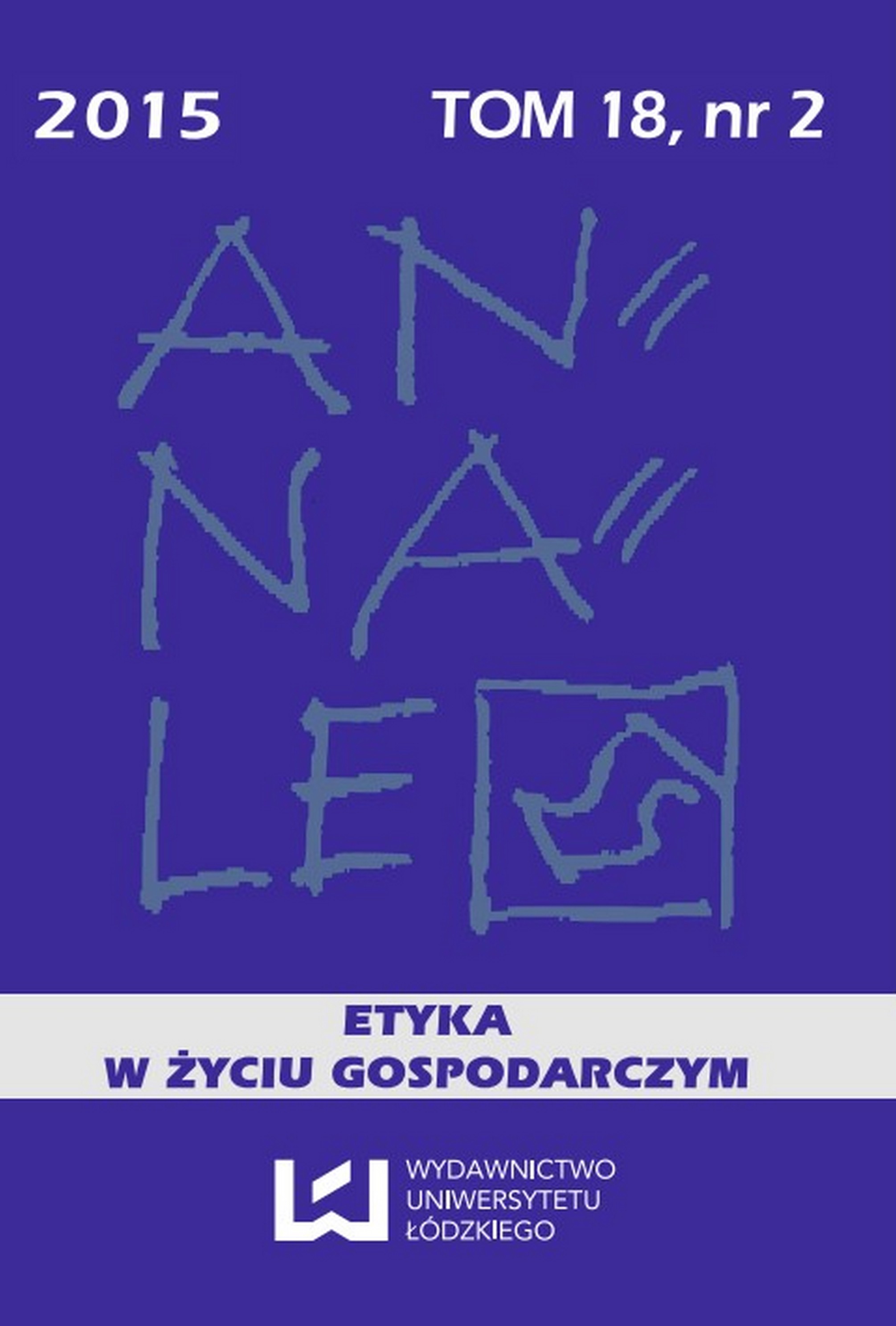Bogactwo. Przyczynek do katolickiego ujęcia tej kategorii
DOI:
https://doi.org/10.18778/1899-2226.18.2.03Słowa kluczowe:
wealth, philosophy, religion, Christian social thoughtAbstrakt
The article presents issues concerning the interpretation of the phenomenon of wealth in the context of Christian thought. From beginning, philosophical thought has been engaged in problems of tangible property and its influence on the human condition. The great philosophers indicated a way that the person should refer to the goods of this world. Plato, Aristotle, Seneca – each of them, according to his own vision of man and the world, referred in his texts to the problem of wealth. Equally significant contributions has been made by the monotheistic religions, Judaism and Christianity. Along with the development of the Church, this phenomenon stood out as an essential point of teaching. Primitive and post-apostolic church, to some extent out of necessity, took polemics with the outside world. Separating faith from matters of management, with its beginning in the Enlightenment, shaken the moral underpinnings of the deeds related to wealth. Marxist philosophy gave impulse to another reflection of the Church over economic phenomena. Leon XIII and his Rerum novarum are a milestone in Catholic thought on negative phenomena within the economy. The Holy Father portrayed threats resulting from the Marxist concept, showing an anthropological concept which was appropriate from the point of view of the Christianity. Social and later encyclicals, treat issues related to wealth from the Christian anthropology standpoint.Bibliografia
Arystoteles, Etyka nikomachejska, tłum. D. Gromska, Wydawnictwo Naukowe PWN, Warszawa 1982.
Google Scholar
Benedykt z Nursji, Reguła, tłum. A. Świderkówna, Wydawnictwo Benedyktynów TYNIEC, Kraków 1994.
Google Scholar
Beyer P., Religia i globalizacja, tłum. T. Kunz, Zakład Wydawniczy NOMOS, Kraków 2005.
Google Scholar
Dylus A., Globalizacja. Reflksje etyczne, Wydawnictwo im. Ossolińskich, Wrocław 2005.
Google Scholar
Dylus A., Gospodarka. Moralność. Chrześcijaństwo, Wydawnictwo Fundacji ATK, Warszawa 1994.
Google Scholar
Gałkowski J., Ziemski los człowieka. Jana Pawła II myśl o pracy, Wydawnictwo KUL, Lublin 2004.
Google Scholar
Jan Paweł II, Centessimus annus, http://www.opoka.org.pl/biblioteka/W/WP/jan_pawel_ii/encykliki/centesimus_2.html#m4
Google Scholar
Jan Paweł II, Laborem exercens, http://www.opoka.org.pl/biblioteka/W/WP/jan_pawel_ii/encykliki/laborem.html
Google Scholar
Jan Paweł II, Sollicitudo rei socialis.
Google Scholar
Klemens Aleksandryjski, Który człowiek bogaty może być zbawiony?, tłum. J. Czuj, Wydawnictwo APOSTOLICUM, Kraków 1995.
Google Scholar
Knowles D., D. Obolensky, Historia Kościoła, t. 2, tłum. R. Turzyński, Instytut Wydawniczy PAX, Warszawa 1988.
Google Scholar
Leon XIII, Rerum novarum, tłum. J. Piwowarczyk, Wydawnictwo TUM, Wrocław 1996.
Google Scholar
Michalski M., Człowiek, praca, kultura, Wydawnictwo Poznańskie, Poznań 2005.
Google Scholar
Paweł VI, Populorum progressio, http://ekai.pl/bib.php/dokumenty/populorum_progressio/populorum_progressio.html
Google Scholar
Pius XI, Quadressimo anno, s. 72, http://www.opoka.org.pl/biblioteka/W/WP/pius_xi/encykliki/quadragesimo_anno_15051931.html
Google Scholar
Platon, Państwo, tłum. W. Witwicki Wydawnictwo Naukowe PWN, Warszawa 2010.
Google Scholar
Ramocka M., Zagadnienie lichwy w ujęciu wielkich religii monoteistycznych, „Annales. Etyka w życiu gospodarczym” 2008, vol. 11, nr 1, s. 297–302, http://www.annalesonline.uni.lodz.pl/archiwum/2008/2008_01_ramocka_297_302.pdf
Google Scholar
DOI: https://doi.org/10.18778/1899-2226.11.1.28
Saint Thomas, Summa Theologiae.
Google Scholar
Seneka, Listy moralne do Lucyliusza, tłum. W. Kornatowski, Wydawnictwo Naukowe PWN, Warszawa 2010.
Google Scholar
Słownik Katolickiej Nauki Społecznej, http://www.kns.gower.pl/slownik/bogactwo.html
Google Scholar
Wilk P., Armia zachłannych, „Tygodnik Powszechny”, nr 34 (3346), s. 22.
Google Scholar
Zwoliński A., Etyka bogacenia, Wydawnictwo WAM, Kraków 2002.
Google Scholar
Pobrania
Opublikowane
Jak cytować
Numer
Dział
Licencja

Utwór dostępny jest na licencji Creative Commons Uznanie autorstwa – Użycie niekomercyjne – Bez utworów zależnych 4.0 Międzynarodowe.









